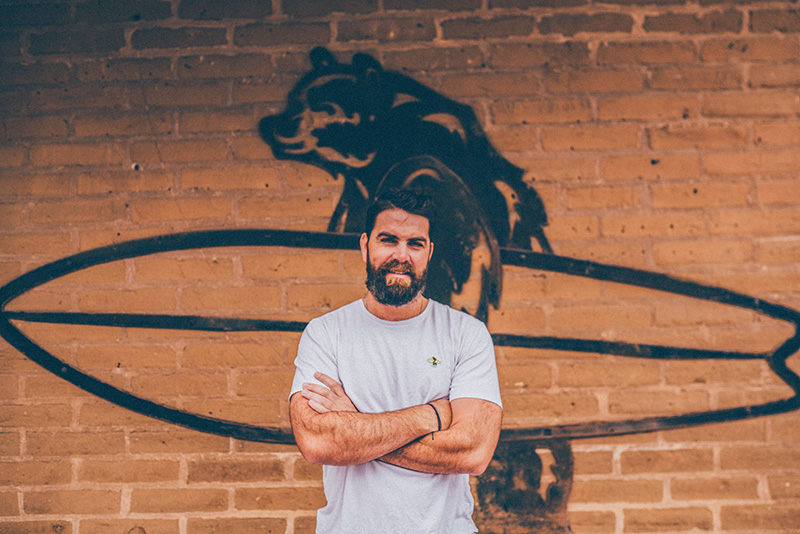
Everyday California co-founder Chris Lynch
PayPal is fortunate to work with more than 35 million businesses, the majority of which are small businesses. One of those businesses is Everyday California, a San Diego, California-based, ocean adventure and lifestyle brand that is growing quickly as people increasingly want to get out, travel and explore again after more than two years of living through a pandemic.
We spoke with Everyday California co-founder Chris Lynch to learn how he went from working in finance to acting school to co-founding Everyday California, how his business balances purpose with profit, how PayPal has helped his business grow, and what advice he has for other entrepreneurs who are thinking about starting their own business.
Dan Leberman: Can you share a background on Everyday California and what inspired you and your co-founder to start the business?
Christopher Lynch: Everyday California is an ocean adventure and lifestyle brand. We offer everything from kayaking, paddle boarding, surfing and snorkeling lessons to tours, rentals and kids camps. We also sell men's, women's and kids’ apparel, as well as a new reef-safe sunscreen that we just launched last year.
My business partner and I have always loved the ocean, being on the water and kayaking, but it wasn’t until shortly after the market crashed in 2008 that we launched our business. I started my career as a research analyst for international hedge funds. Then the market crashed, and I lost my job. I moved to Hollywood and went to acting school. A couple years later, my friend – and now business partner – found out that the kayak company we had worked at in college went out of business. They still had the permit, and some old kayaks and wetsuits, and we had the opportunity to take over the permit.
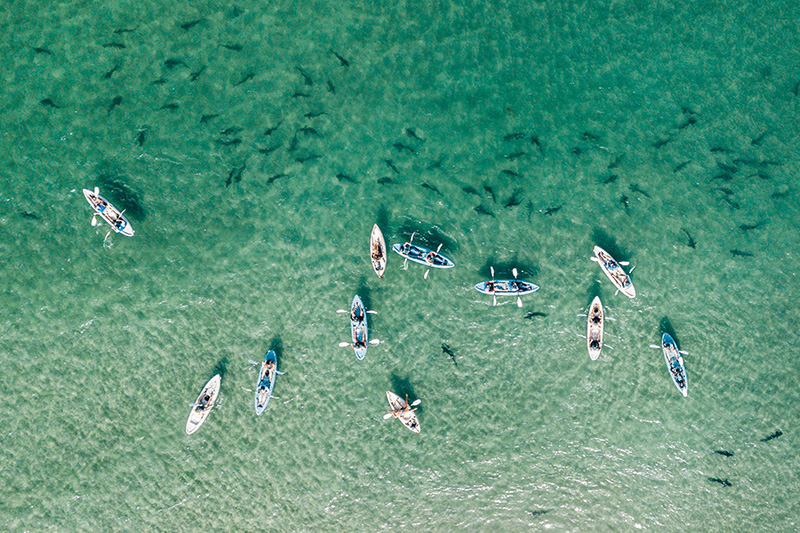
I decided to move back to San Diego and we launched the business in November 2010. We started out with an old pickup truck, some old kayaks and really torn up wetsuits and a cell phone, which we used to book tours. Less than a year later, we opened a 500 square foot location in La Jolla, and had a team of around 20 employees. We started out really small, but business picked up quickly. We lowered our prices so that we offered the cheapest kayak tours in town. As we got more customers, we realized we needed to create a brand. We wanted to sell the experience, but also sell something our customers could take home with them.
So, in 2012, we rebranded to Everyday California, we created a real brand and logo. We started by selling 12 hats and 12 T-shirts. We bought more inventory as they sold. Ten years later, we’re based in a 2,600 square foot store right on the beach, we have upwards of 125 employees during our peak summer months, our apparel store has about 400 different SKUs and sees about 70,000 customers a year, and we also sell through about 100 retailers around the U.S.
DL: You took a big leap choosing to start your own business. What advice do you have for other entrepreneurs thinking about starting their own business?
CL: First, it’s always going to be a big leap from having a traditional job to starting your own business. But I’ve always wanted to be my own boss and control my own destiny. Second, just go for it, don’t wait for everything to be perfect, just know you will have to keep iterating as you go. I know the economy is down right now, but that actually makes it a great time to start a business. Starting a business during tough economic times means you’re less likely to rely on external funding and more likely to rely on your own profits. We were never focused on trying to raise a bunch money given the economic climate when we launched. We knew that to be a lasting business, we had to be a profitable business, so we’ve always kept an eye on our bottom line. So, take the leap, start your business, but make sure it’s a business that can be profitable. Finally, you’ll need to be flexible and willing to learn and take on new roles. I started off in the water giving kayak tours and now I’m mostly focused on our strategy, revenue growth and customer acquisition. So, when you do take the leap and start your own business, be open to having your role evolve as your business grows.
DL: Everyday California has used PayPal since it first started. Can you share what PayPal tools you use and how they help your business?
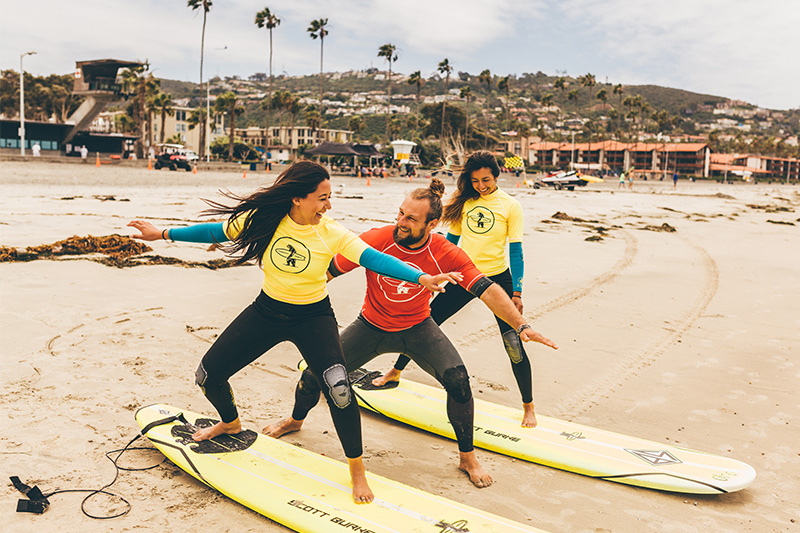 >
>
CL: We use PayPal in three important ways. First, we offer customers the ability and choice to pay with PayPal Checkout, which is a seamless checkout option available through our shopping cart provider. When we first started, PayPal was one of the major ways we collected money. Second, PayPal seamlessly integrates into our booking system. We have outside international travel agencies that book experiences directly through our platform, and these travel agencies then pay us through PayPal at the end of the month. Finally, our main manufacturer in China, which we use for things like trim for our logo patches, prefers getting paid via PayPal versus getting a wire because it’s instant for them. They get paid right away, and it’s also much easier for us to pay via PayPal rather than having to go through the bank to wire money. So we pay them via PayPal.
DL: Your business balances profit with purpose. Can you talk about how your company gives back and your commitment to protecting the ocean?
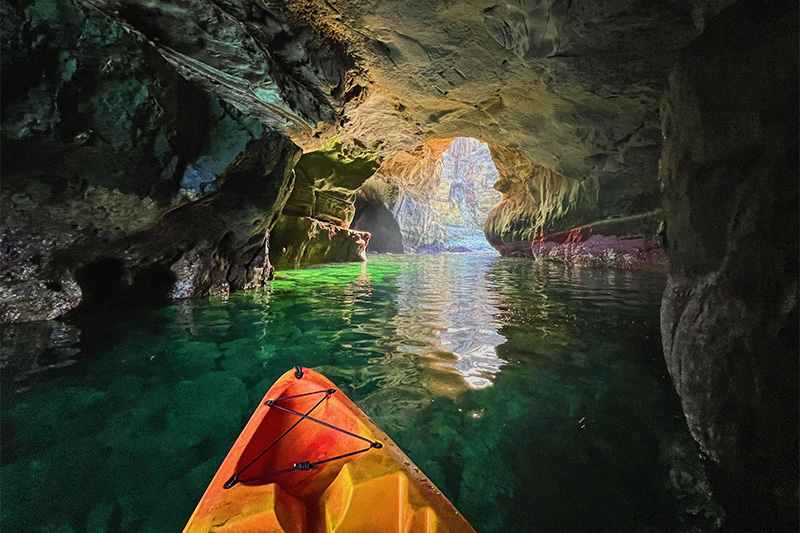
CL: Our business is rooted in adventure and basically started on the ocean. So, helping protect the environment, the ocean and marine life is really important to us. We joined 1% For The Planet about four years ago and we donate 1% of our gross revenue to ocean or environmental-based charities, like Green Wave.
We also work closely with Urban Surf 4 Kids, which is an amazing local charity that works with youth in foster and at-risk communities. Through various surf camps and summer camps, Urban Surf 4 Kids teaches kids how to surf, about the environment and about ocean conservation. We sponsor about 10-15% of the underprivileged kids who go through the program.
DL: Everyday California is very active on social media. How do you leverage social to keep your customers engaged and raise awareness for your business?
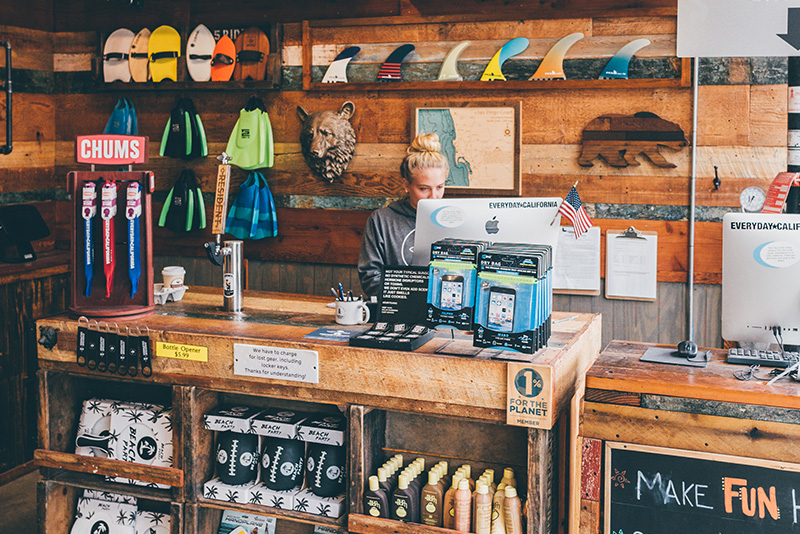
CL: We are active on social media every single day. We use social channels like Instagram to tell our brand story and to keep our customers informed as to what’s going on. TikTok is huge right now – it's a great storytelling platform -- and we’re building our following there as well. Being an adventure brand, we’re able to really show the experiences we offer. For example, our tour guides often use our social channels to share videos and tell stories about everything from the leopard sharks they saw to their cave adventures. Telling our stories authentically through our social channels – not just promoting our products -- is what our followers want to see.